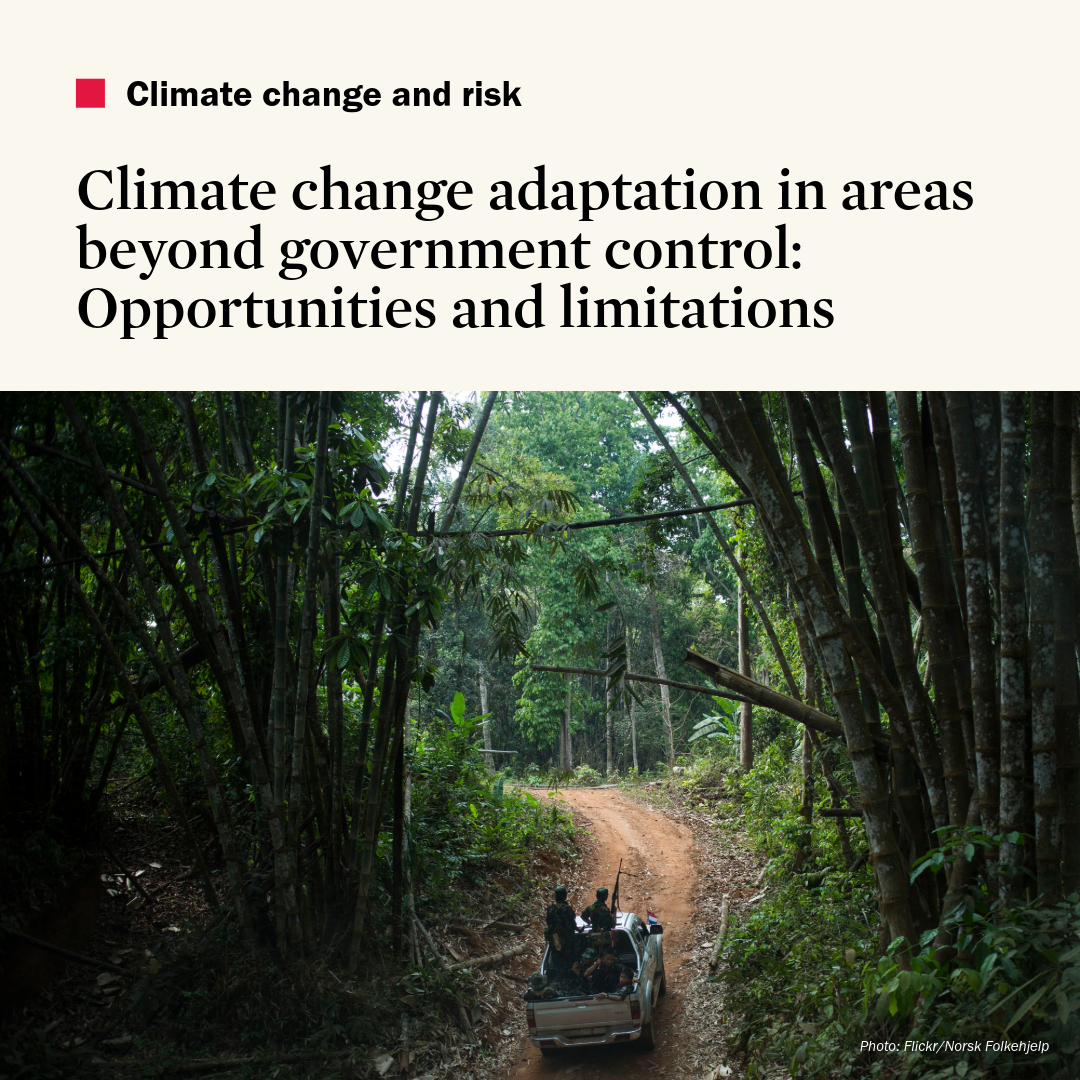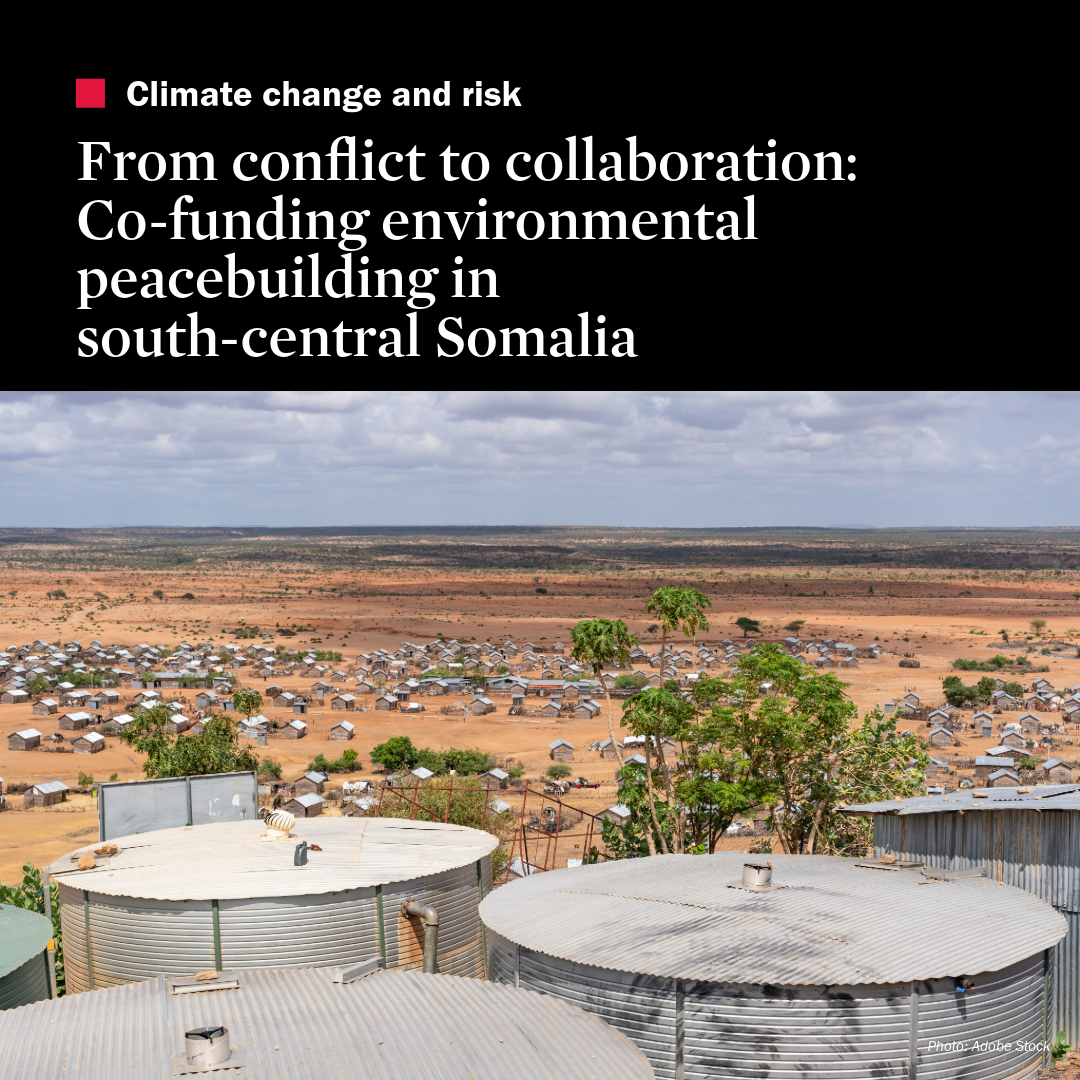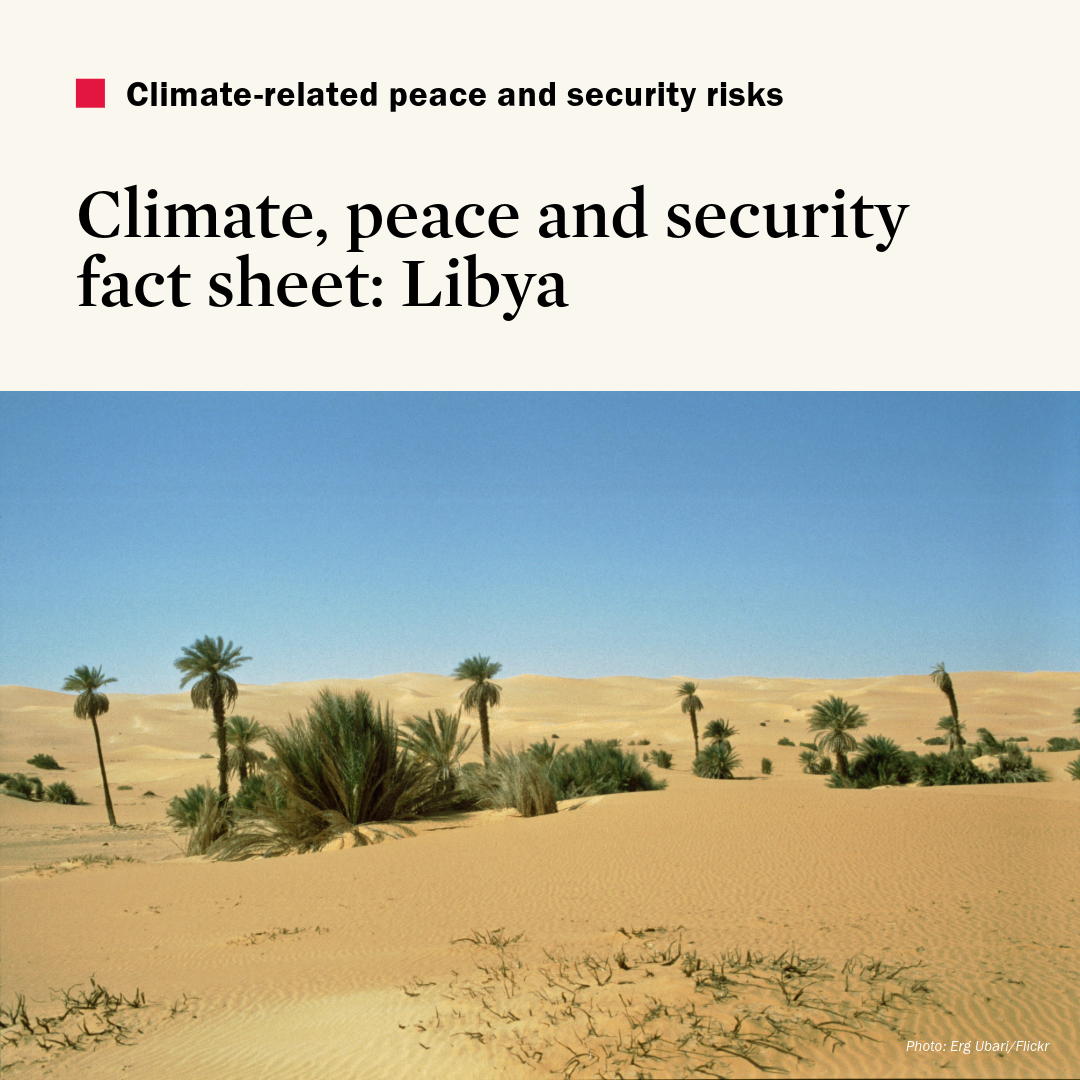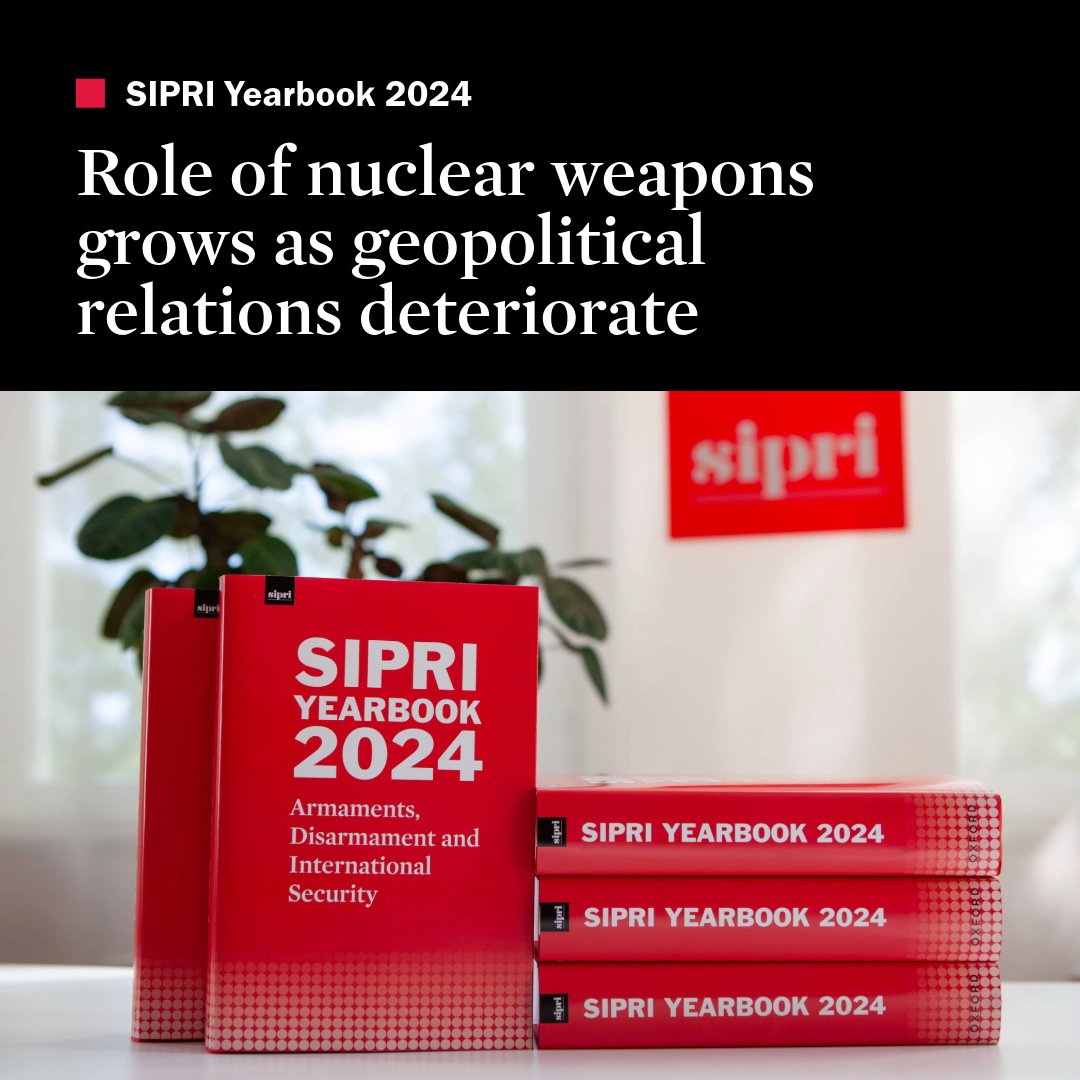|
| NEWS |
 |
| SIPRI Yearbook 2024 summary now available in eight languages |
|
The summary of SIPRI Yearbook 2024 is now available in Catalan, Chinese, Dutch, Farsi, Italian, Spanish and Swedish. The summaries can be downloaded from the SIPRI website, alongside the English version. Additional languages will be added as they become available. SIPRI is grateful to its translation partners—the Flemish Peace Institute (Vlaams Vredesinstituut), FundiPau (Fundació per la pau) and the Torino World Affairs Institute (T.wai).
|
|
|
Read more | Read more about SIPRI Yearbook 2024
|
|
|
 |
| SIPRI research featured at global AI summit |
|
SIPRI led three breakout sessions at the 2024 edition of the REAIM Summit. The Responsible AI in the Military Domain Summit (REAIM) is a platform intended to facilitate a global discussion on responsible military use of AI. The first session explored how the debate on AI in military decision-making can learn from the policy process on autonomous weapon systems. The second session examined bias in military AI, and the third session looked at how export control regimes contribute to the responsible use of military AI.
|
|
|
Read more
|
|
|
 |
| SIPRI co-hosts Doha workshop on security and defence in the Middle East and Asia |
|
On 8–9 September, SIPRI and the Middle East Council on Global Affairs co-hosted a workshop on the theme ‘Asia and the Middle East Beyond Energy: Towards Security and Defense Cooperation’. Participants explored topics such as the catalysts of recent growth in defence cooperation between Middle Eastern and Asian countries. This workshop, which took place in Doha, Qatar, was the second iteration following an earlier workshop in Stockholm, Sweden, in December 2023.
|
|
|
Read more
|
|
|
 |
| UN panel features discussion on SIPRI databases |
|
On 29 August, SIPRI experts showcased SIPRI’s databases during a United Nations panel. The presentation, for staff in the UN Peace and Security Pillar, covered three SIPRI databases—the Arms Transfers Database, the Military Expenditure Database and the Multilateral Peace Operations Database. A panel discussion followed, exploring how data informs political and conflict analysis. Participants discussed trends in the arms trade, military expenditure and multilateral peace operations.
|
|
|
Read more | Explore the SIPRI databases
|
|
|
|
| COMMENTARY |
 |
| More effective aid by design: Integrating food, climate and peace |
|
The number of people suffering acute food insecurity keeps rising, driven by conflict, climate pressures and economic crises. With armed conflicts proving intractable, climate impacts intensifying and humanitarian funding falling behind ever-growing humanitarian need, aid urgently needs to become more effective. The logic of integrating food security, climate resilience and peacebuilding interventions to make aid more effective has long been recognized, but such integrated approaches have been slow to emerge. This blog explores how to accelerate progress on integrated approaches, looking at the example of the Sahel Resilience Partnership.
|
|
Read the SIPRI WritePeace blog
|
|
|
 |
| The difficult journey to trust in conflict-affected societies |
|
Trust—a crucial ingredient of peaceful coexistence—is sparse worldwide. Building trust is especially difficult after armed conflict. This blog explores processes from past reconciliation efforts that are relevant for rebuilding trust. Lessons are drawn from five interconnected processes: re-humanization, truth-telling and reconciliation, justice and accountability, addressing the effects of trauma, and power-sharing. The form and implementation of each of them depends on the context and none is effective on its own. Furthermore, all are challenging, with many pitfalls to avoid.
|
|
Read the SIPRI WritePeace blog
|
|
|
 |
| Navigating the Red Sea: Addressing threats and harnessing potential |
|
In recent months, the Red Sea has drawn global attention. This blog post gives an overview of current issues around the Red Sea and possible ways to address them, building on the outcomes of a panel discussion at the 2024 Stockholm Forum on Peace and Development. It concludes by outlining several areas where enhanced cooperation is achievable and could benefit the region as a whole. Strengthening cooperation through robust multilateral frameworks is vital to addressing the factors that underpin regional insecurity as well as to promoting sustainable development.
|
|
Read the SIPRI WritePeace blog
|
|
|
 |
| Storytelling: A tool for change |
|
Storytelling has the power to overcome biases, create empathy and support the building of peaceful societies. However, destructive storytelling can tear at the fabric of societies; and when weaponized as a tool of disinformation or propaganda, it can undermine peace, spark and sustain conflicts, and lead to atrocities. This blog explores methods of countering destructive storytelling. At a time when storytelling is bitterly contested, empowering people to share their experiences provides a way to reclaim storytelling’s innocence and natural power to educate, bring people together and find common ground.
|
|
Read the SIPRI WritePeace blog
|
|
|
|
 |
| External outlets |
|
SIPRI experts were recently featured in these external outlets:
|
|
|
|
| UPCOMING EVENTS |
| |
| 29 October 2024 |
| COP16 side event: Biodiversity, land use change and the implications for conflict in Latin America |
|
SIPRI will co-host this side event to the 16th Meeting of the Conference of the Parties to the Convention on Biological Diversity (COP16 CBD) in Cali, Colombia, with the Friedrich Ebert Foundation and the Swedish International Agricultural Network Initiative. With a focus on Latin America, participants will explore strategies to enhance food security in regions affected by land degradation and climate change.
|
|
Read more
|
|
| |
| 2–5 December 2024 |
| SIPRI-led course on WMD non-proliferation and disarmament |
|
This introductory course on the non-proliferation and disarmament of weapons of mass destruction (WMD) is open to graduate and postgraduate students of technical disciplines.
|
|
Read more
|
|
|
| RECENT EVENTS |
| |
| 10 September 2024 |
| SIPRI and the Red Cross host roundtable on global hunger |
|
On 10 September, SIPRI and the Swedish Red Cross hosted a roundtable addressing the rise in global hunger. The event, which was held at SIPRI, focused on the humanitarian case for conflict prevention. Participants included representatives from the Swedish government, non-governmental organizations, research institutes and international organizations. This group of key stakeholders discussed the move from reacting to humanitarian crises to preventing conflict and how Sweden can support this shift.
|
|
Read more
|
|
| |
| 23 August 2024 |
| SIPRI co-sponsors side event on transparency at the 10th Conference of States Parties to the ATT |
|
On 23 August, Dr Mark Bromley, Director of the SIPRI Dual-Use and Arms Trade Control Programme, presented an overview of trends in arms trade transparency at a side event of the 10th Conference of States Parties to the 2013 Arms Trade Treaty (ATT). The event highlighted the key challenges related to reporting on arms transfers and explored the consequences they have for accountability and oversight.
|
|
Read more
|
|
|
| STAFF NEWS |
Current vacancies:
- Director (Closing date: 13 October)
|
|
Read more
|
|
|
|
| PUBLICATIONS |
 |
| Nuclear Weapons and Artificial Intelligence: Technological Promises and Practical Realities |
|
Recent advances in AI have increased state interest in leveraging AI for military purposes. Military integration of advanced AI by nuclear-armed states has the potential to have an impact on elements of their nuclear deterrence architecture. This paper outlines the state of play of the technical possibilities for integration of advanced AI by analysing the determinant factors that will drive, or hinder, potential integration.The exploration of these factors lays the groundwork for further consideration of the likely realities of integration and of potential transparency measures and governance practices at the AI–nuclear nexus.
|
|
Read the SIPRI Background Paper
|
|
 |
| Climate Change Adaptation in Areas Beyond Government Control: Opportunities and Limitations |
|
Adaptation to climate change in areas beyond government control is a challenging issue. As a result of conflict and weak governance, many of these areas have become more vulnerable to climate change, and these settings have long been overlooked in adaptation efforts. This paper proposes a framework with four guiding questions that may be helpful in identifying the most suitable climate change adaptation measures for a particular context. Rather than being a blueprint for selecting specific adaptation actions, the questions are intended to inspire consideration of different adaptation options.
|
|
Read the SIPRI Insights Paper
|
|
 |
| From Conflict to Collaboration: Co-funding Environmental Peacebuilding in South-central Somalia |
|
This SIPRI Policy Brief explores how the International Organization for Migration (IOM) in Somalia uses a co-funding mechanism for facilitating collaboration between groups in conflict on addressing shared local priorities. Somalia is experiencing significant impacts of climate change. Its climate-related vulnerabilities are exacerbated by the effects of violent conflict and fragmented governance. There is a need for policies and programmes that tackle climate change and conflict in tandem. This policy brief finds that elements of the IOM approach can support environmental peacebuilding in contexts exposed to climate change and conflict.
|
|
Read the SIPRI Policy Brief
|
 |
| Climate, Peace and Security Fact Sheet: Libya (2024) |
|
This Climate, Peace and Security Fact Sheet is focused on Libya and the series of conflict- and climate-related issues that face the country. The fact sheet offers a range of recommended actions for the international community to address these issues effectively. Libya is exposed to a number of climate hazards. Climate stressors are in turn aggravated by political turmoil, a divided government, protracted conflict and the presence of a plethora of armed groups. These factors affect efforts to address climate-related risks, including those that may influence peace and security dynamics.
|
|
Read the report
|
|
|
|
|
 |
| SIPRI Yearbook 2024 |
SIPRI Yearbook 2024 presents a combination of original data in areas such as world military expenditure, international arms transfers, arms production, nuclear forces, armed conflicts and multilateral peace operations, with state-of-the-art analysis of important aspects of arms control, peace and international security. In addition to its detailed coverage of nuclear arms control and non-proliferation issues, the latest edition of the SIPRI Yearbook includes:
- insight on developments in conventional arms control in 2023;
- regional overviews of armed conflicts and conflict management;
- in-depth data and discussion on military expenditure, international arms transfers and arms production; and
- comprehensive coverage of efforts to counter chemical and biological security threats.
|
|
Browse the contents page | Download the summary (PDF) | Download the sample chapter on world nuclear forces (PDF) | Download the introductory chapter (PDF) | Order SIPRI Yearbook 2024
|
|
|
| |
|
|
|
|
|